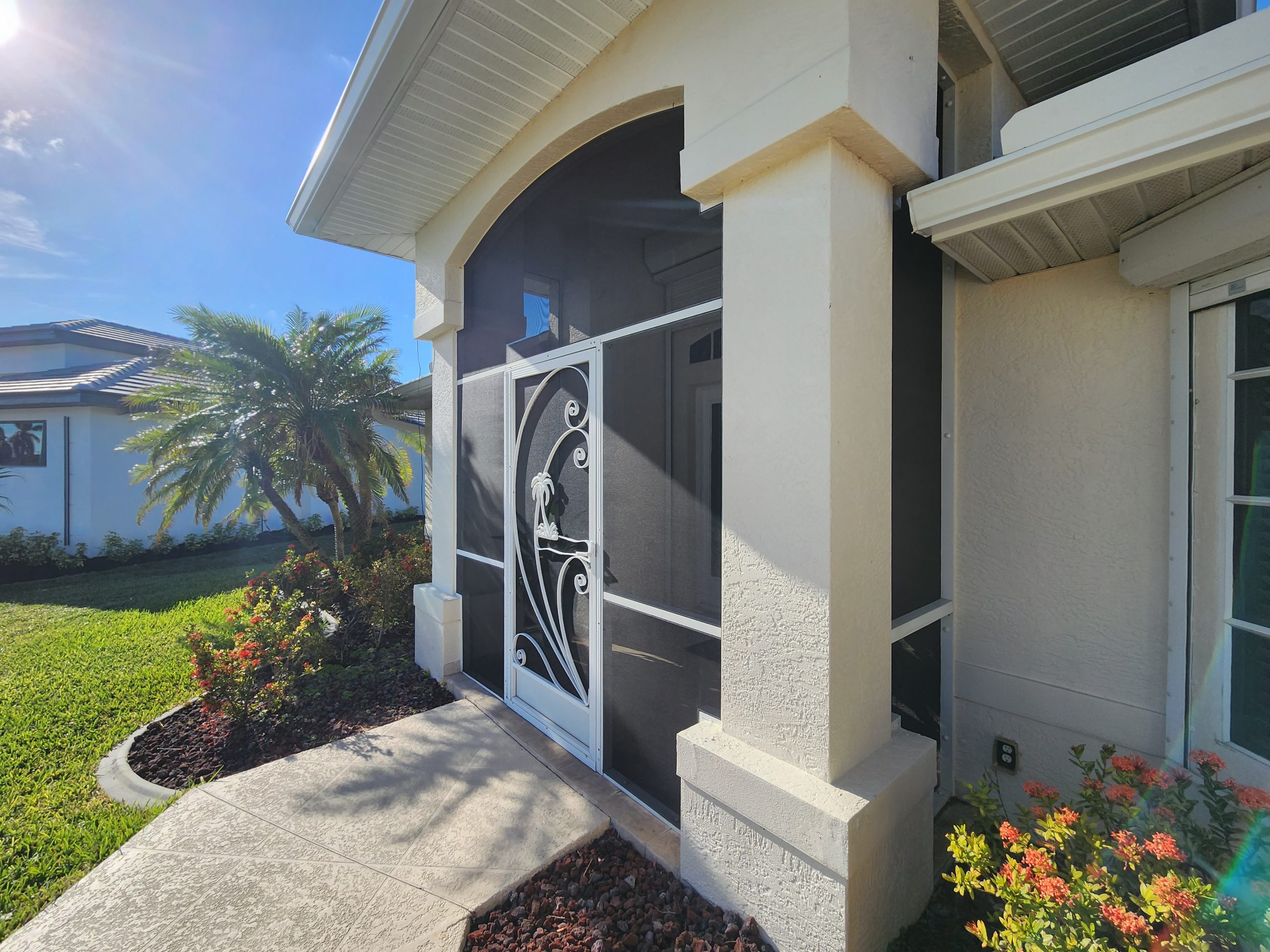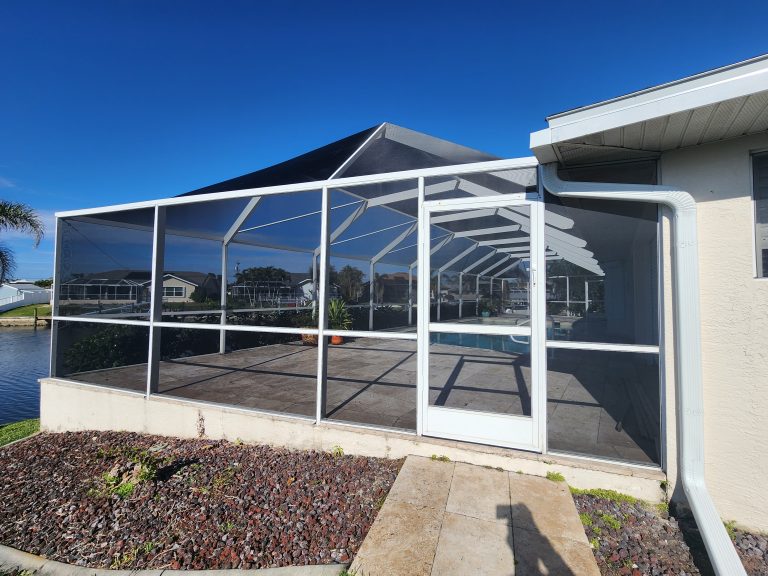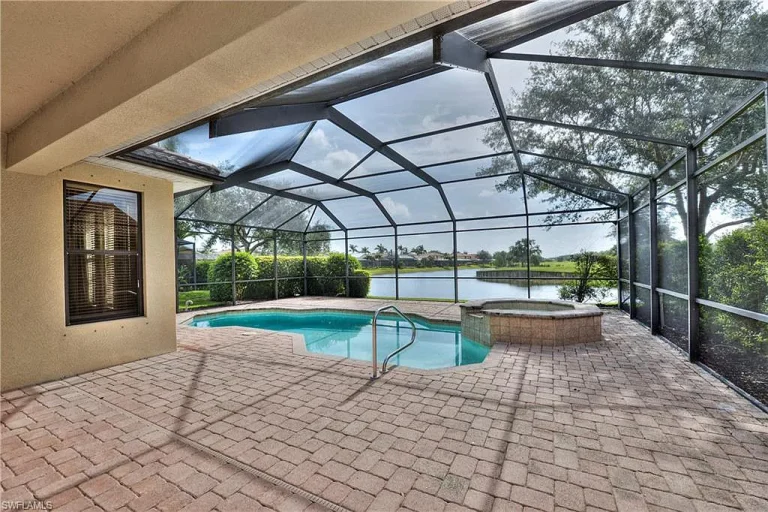Living in Florida comes with many benefits, including the year-round warmth and outdoor lifestyle. However, the state’s tropical climate, abundant sunshine, heavy rains, and strong winds can take a toll on your patio screen over time. Patio screens are essential for keeping out pests, debris, and providing a comfortable outdoor space. To maintain the functionality and appearance of your outdoor area, it’s important to know when to rescreen your patio. In this blog, we’ll discuss how often you should rescreen your patio in Florida and what factors to consider.
1. Typical Lifespan of Patio Screens
The lifespan of your patio screen depends largely on the quality of materials used, exposure to weather conditions, and how well it’s maintained. In general, standard fiberglass or polyester screens can last anywhere from 5 to 15 years in Florida’s climate. More durable screen options, like pet-resistant or solar screens, may last closer to 15 to 20 years with proper care.
However, environmental factors unique to Florida, such as high humidity, salt air (especially in coastal regions), and frequent storms, can significantly shorten the lifespan of your screens. Regular inspection and maintenance are key to extending their longevity.
Common Screen Materials and Their Durability:
- Fiberglass Screens: Typically last 7 to 10 years, but may deteriorate faster in areas with heavy sun exposure.
- Polyester Screens: More durable than fiberglass, these screens can last 10 to 15 years.
- Pet-Resistant Screens: Specifically designed to withstand scratching or damage from pets, these screens can last up to 15 years.
- No-See-Um Screens: A tighter weave designed to block tiny insects, these screens typically last 7 to 12 years.
2. Signs It’s Time to Rescreen Your Patio
There are several indicators that it’s time to rescreen your patio. Even if your screen is still functional, wear and tear can reduce its effectiveness and aesthetic appeal. Below are some common signs to look for:
Visible Tears or Holes
Even small tears or holes in your screen can compromise its ability to keep out insects and debris. If you start noticing gaps or rips in your screen panels, it’s time to consider rescreening.
Sagging or Loose Screens
Screens can become loose or sag over time, especially after exposure to strong winds or heavy rains. If your screen is no longer taut, this is a sign that it may need to be tightened or completely replaced.
Discoloration or Fading
The intense Florida sun can cause your screens to fade or become discolored over time. This not only detracts from the appearance of your patio but also indicates that the screen material may be deteriorating.
Difficulty in Keeping Bugs Out
If you’re noticing an increase in insects on your patio despite your screen being in place, this could be a sign that the screen’s weave has become too loose or damaged, allowing smaller bugs like no-see-ums or mosquitoes to get through.
Frequent Repairs
If you find yourself constantly patching or repairing sections of your patio screen, it may be more cost-effective to invest in a full rescreening rather than continuing to fix individual panels.
3. Weather and Environmental Factors in Florida
Florida’s climate plays a significant role in how often you should rescreen your patio. Here are some key environmental factors to consider:
Hurricane Season
Florida is known for its hurricane season, which runs from June to November. Strong winds, rain, and flying debris during storms can cause significant damage to patio screens. Even if your screens survive a storm, the stress on the materials can shorten their lifespan. After any major weather event, it’s a good idea to inspect your screens for damage.
Salt Air and Humidity
If you live near the coast, the salt air can accelerate the corrosion of screen materials, especially the frame and hardware. Additionally, Florida’s high humidity can promote mold and mildew growth on your screens. Regular cleaning and maintenance can help prevent these issues, but over time, they will still reduce the lifespan of your screen.
Intense Sunlight
Constant exposure to the sun can cause your screens to become brittle and prone to cracking. UV rays can also fade and weaken screen materials. If your patio is exposed to full sun throughout the day, you may need to rescreen more frequently than those with shaded patios.
4. The Benefits of Regular Rescreening
Regularly rescreening your patio has several benefits beyond aesthetics. Here are a few reasons why staying on top of rescreening is essential for Florida homeowners:
Insect Control
Florida’s warm climate means insects are a constant presence. Regular rescreening ensures your patio is fully protected from pests like mosquitoes, flies, and no-see-ums, allowing you to enjoy your outdoor space without interruptions.
Enhanced Outdoor Experience
A well-maintained patio screen creates a comfortable, bug-free outdoor space where you can relax, entertain, and enjoy the Florida weather. By keeping your screens in good condition, you’ll get the most out of your patio.
Increased Property Value
A clean, functional screen enclosure adds value to your home, especially in Florida, where outdoor living spaces are a key feature for many homeowners. If you’re considering selling your home, a properly maintained or newly rescreened patio can be a strong selling point.
Preventative Maintenance
Regularly rescreening your patio can prevent more costly repairs in the future. If you wait too long to rescreen, the damage may extend to the frame or structural components of your patio enclosure, leading to more extensive and expensive repairs.
5. When to Schedule a Rescreening
So, how often should you rescreen your patio in Florida? On average, homeowners in Florida should consider rescreening their patio every 7 to 12 years, depending on the material used and the amount of wear and tear it experiences. However, if you notice any of the warning signs mentioned earlier—such as tears, sagging, or discoloration—it’s best to rescreen sooner rather than later.
Annual Inspections
To avoid any surprises, it’s a good idea to schedule an annual inspection of your patio screens, especially after hurricane season or a long stretch of sunny weather. Catching small issues early can save you from larger, more costly repairs down the road.
In Florida, regular patio rescreening is essential for maintaining a functional, comfortable outdoor space. While the lifespan of your screen will depend on factors like material and exposure to the elements, homeowners should generally plan to rescreen their patio every 7 to 12 years. However, if you notice visible signs of wear and tear, it may be time for a rescreening sooner.
At Best Rescreen Company, we offer high-quality patio rescreening services to keep your outdoor space in top shape. Contact us today for a free consultation and learn how we can help extend the life of your patio screens!




